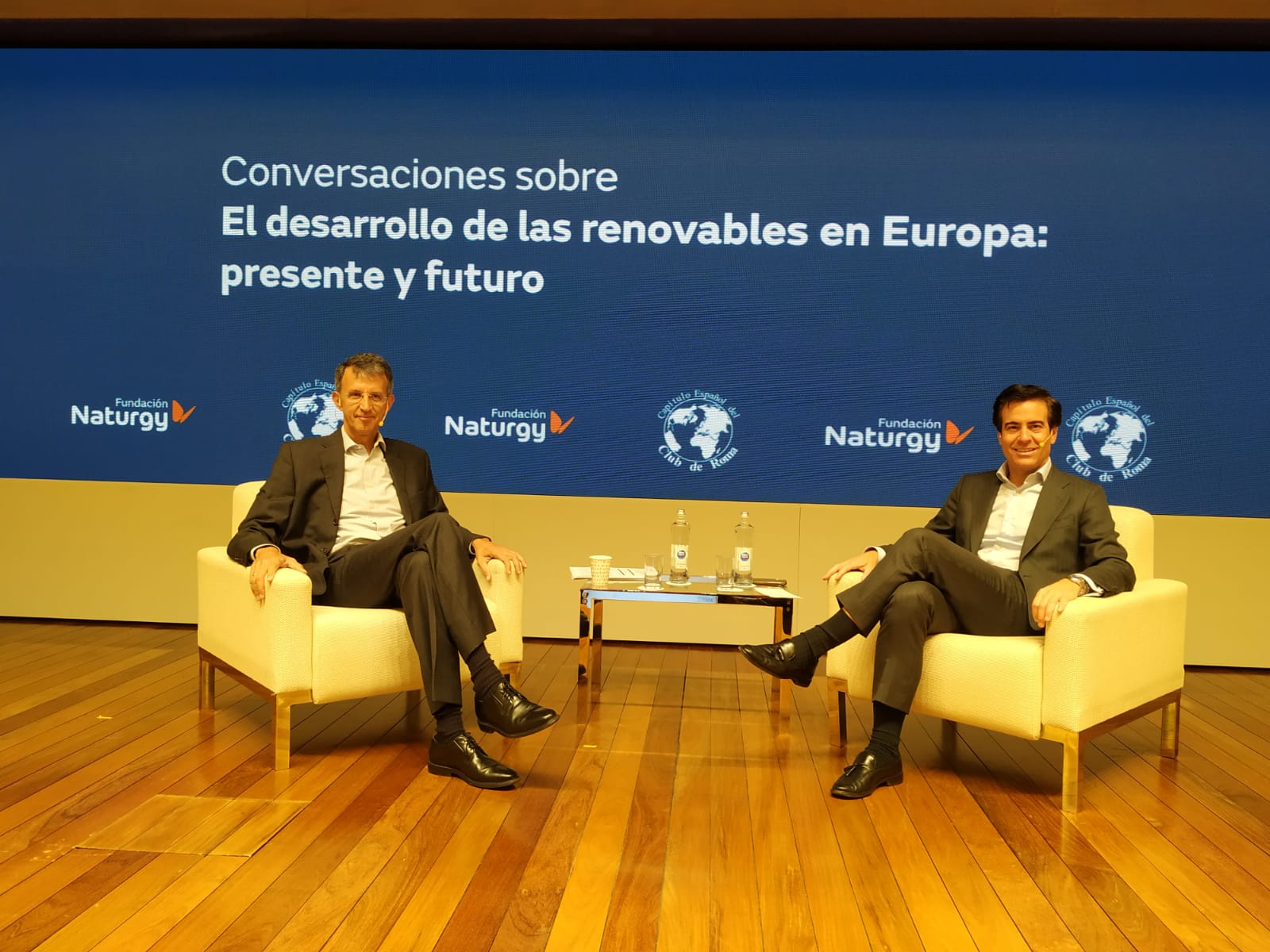Europe must maintain mechanisms that mitigate the impact of the transition to continue leading the decarbonisation process
EIT Innoenergy CEO Diego Pavía and Deloitte European Policy Centre Managing Director Pablo Zalba discuss the future of renewable energies in Europe in an online session organised by the Naturgy Foundation and the Spanish Chapter of The Club of Rome.

The Naturgy Foundation, together with the Spanish Chapter of The Club of Rome, held the webinar ‘The development of renewable energies in Europe: present and future’ today with EIT Innoenergy CEO Diego Pavía and Deloitte European Policy Centre Managing Director Pablo Zalba. The two experts agree that a regulation is needed which mitigates the negative impacts of the first phase of the energy transition up to 2030, to reach the EU's goal of decarbonisation by 2050
In any event, both experts were “tremendously optimistic” as regards technology making it possible to meet the EU’s targets for 2030. “It looks like an insurmountable challenge, but we will undergo a massive technological revolution in the coming years that will enable us to meet these targets”, said Zalba.
Pavía said that the sustainable revolution will enable us to retain more disposable income. “We can generate a month's worth of additional GDP simply by shifting our production system towards sustainability”, he said. To do that we need a real systemic transformation, requiring massive investments with an intermediate phase “that includes a more expensive transition to 2030”.
Zalba highlighted the European Union’s leading role, not only on the path towards decarbonisation, but also in launching the mechanisms for mitigating the negative impacts of the transition in the short term. “Despite COVID, Europe has implemented the mechanisms of the Next Generation funds to mitigate that impact without losing sight of the roadmap towards sustainability”, he said.
The managing director from the Deloitte European Policy Centre also highlighted the Carbon Border Tax and the future green taxonomy as additional tools that will keep the EU at the forefront in the fight against climate change. “Taxonomy needs to be implemented to measure all the investments in sustainable assets that we have announced and to reach a consensus on the degree of improvement towards sustainability. We need a great deal of pragmatism to reach the overall goal, so taxonomy will also be key for the transition energies”, said Zalba.
In that regard, Pavía also recalled that “in this transition we are going through, there is a pool of different solutions that need to guarantee that we reach the final goal”.
Sustainability as leverage for growth
The two experts stressed the massive amount of public and private resources that will be mobilised in the coming years, so “regulation must be a facilitator and offer legal guarantees, converting sustainability into a lever for growth and job creation”, in Zalba’s opinion.
In that sense, the EIT Innoenergy CEO used the example of electromobility, which “will create 4 million new jobs to transform our transport model, representing a quarter of the current jobs in the EU”.
The speakers agreed on the need for education to get the public involved in the great challenge represented by the paradigm shift towards a green economy. “It is a daunting task, and the energy sector has a clear role to play, but it cannot be encapsulated in this sector. It affects society at large, it will affect everyone”, said Zalba, adding that “society needs to be educated so that the public is aware and takes part in ensuring the energy transformation is beneficial”.
The webinar was kicked off by Naturgy Foundation General Manager María Eugenia Coronado, who highlighted Europe’s leadership in the fight against climate change, with the carbon-neutral targets of the European Green Deal, the Fit for 55% legislation package for accelerating the reduction of emissions in 2030, and the Next Generation funds, which will contribute to a “more ecological, digital, resilient future, better adapted to current and future challenges”.
Closing the session, José Manuel Móran, Vice-Chair of the Spanish Chapter of The Club of Rome, said that “we must be meticulous when analysing the problems. We cannot just speak of innovation without considering the negative consequences. So, it is important to analyse our current situation and promote innovation and public understanding”.
Share